Logical Reasoning Normal Reading Fiction Worksheets for Ages 5-8
5 filtered results
-
From - To
Enhance your child's reading comprehension with our engaging Logical Reasoning Normal Reading Fiction Worksheets, designed specifically for ages 5-8. These creative worksheets blend fun and learning, helping young readers develop critical thinking skills while enjoying captivating stories. Each worksheet focuses on strengthening logical reasoning through interactive activities, comprehension questions, and problem-solving challenges inspired by age-appropriate fiction. Perfect for educators and parents alike, these resources aim to nurture curiosity, boost vocabulary, and encourage analytical thinking. Explore a world of imaginative tales that inspire your child’s love for reading, all while laying the foundation for essential reasoning skills in a playful, educational way!
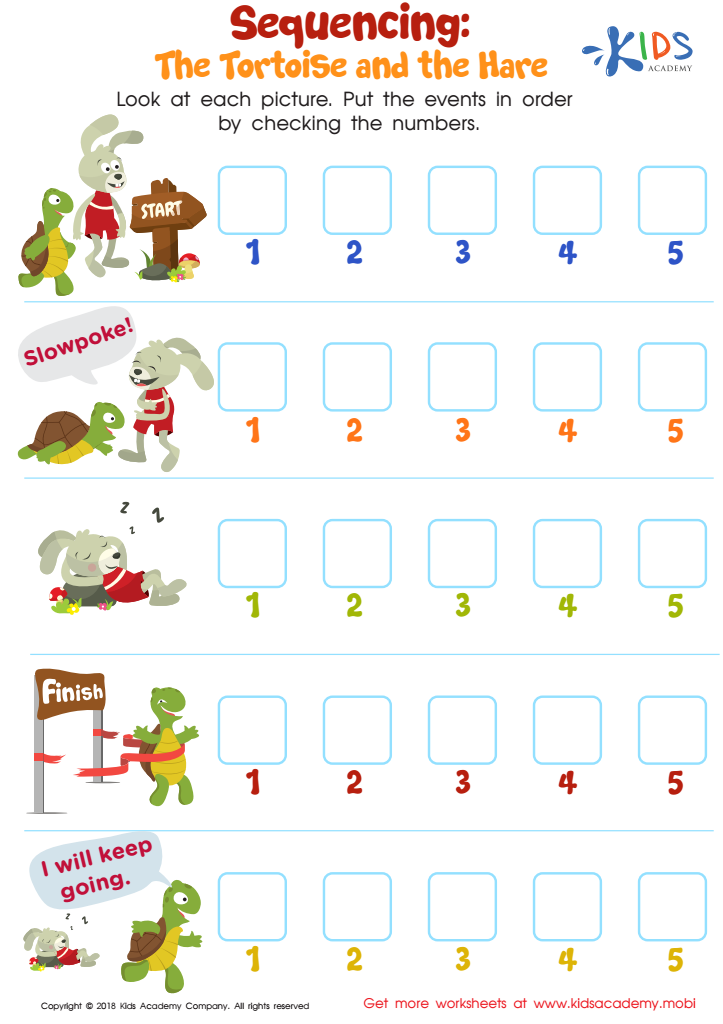

Sequencing: The Tortoise and the Hare Worksheet
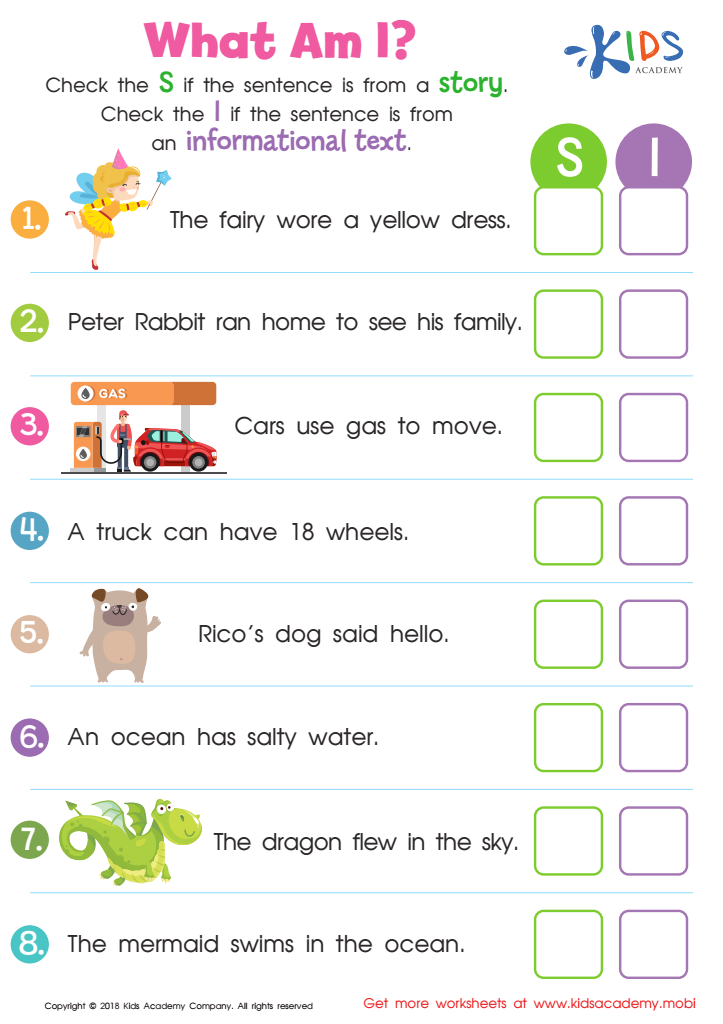

What Am I? Worksheet
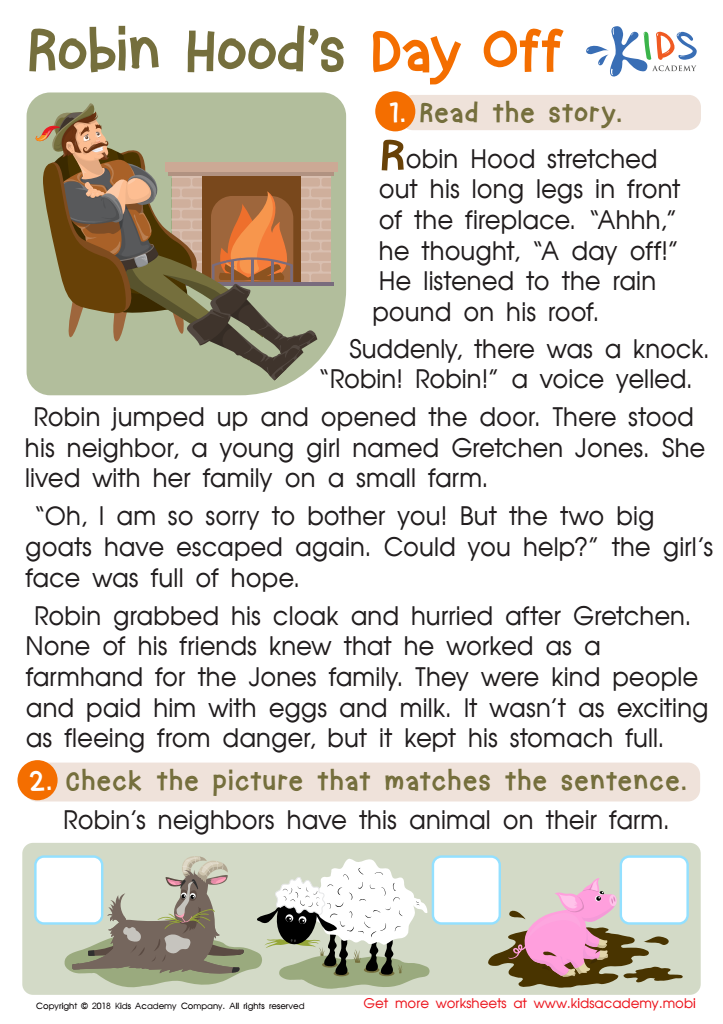

Robin Hood's Day Off Worksheet
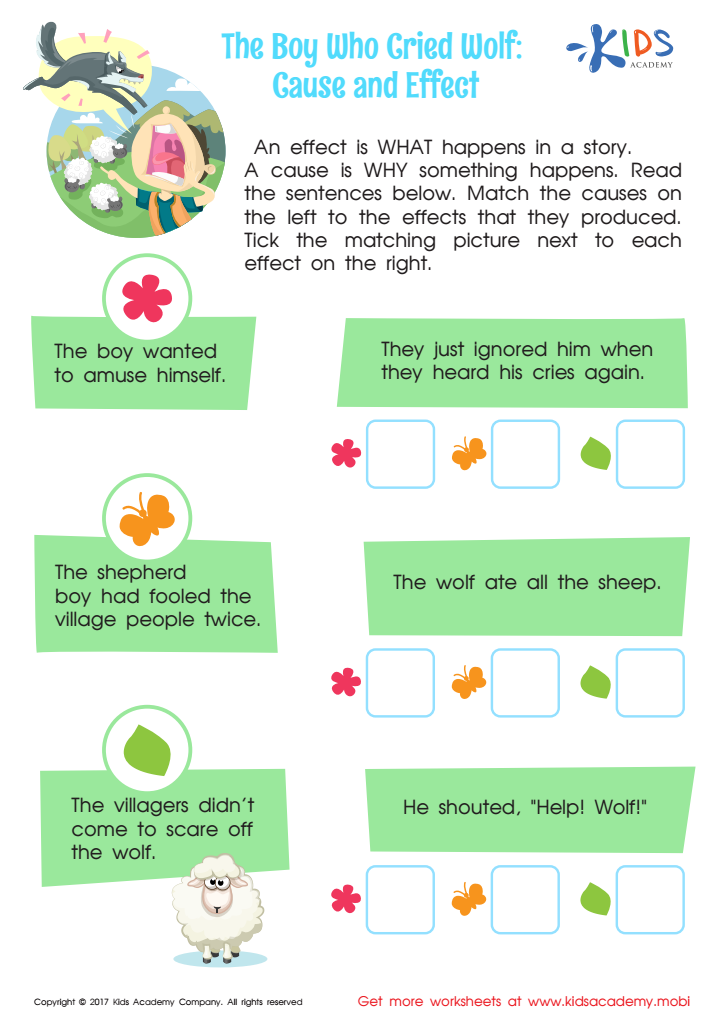

The Boy Who Cried Wolf: Cause and Effect Worksheet
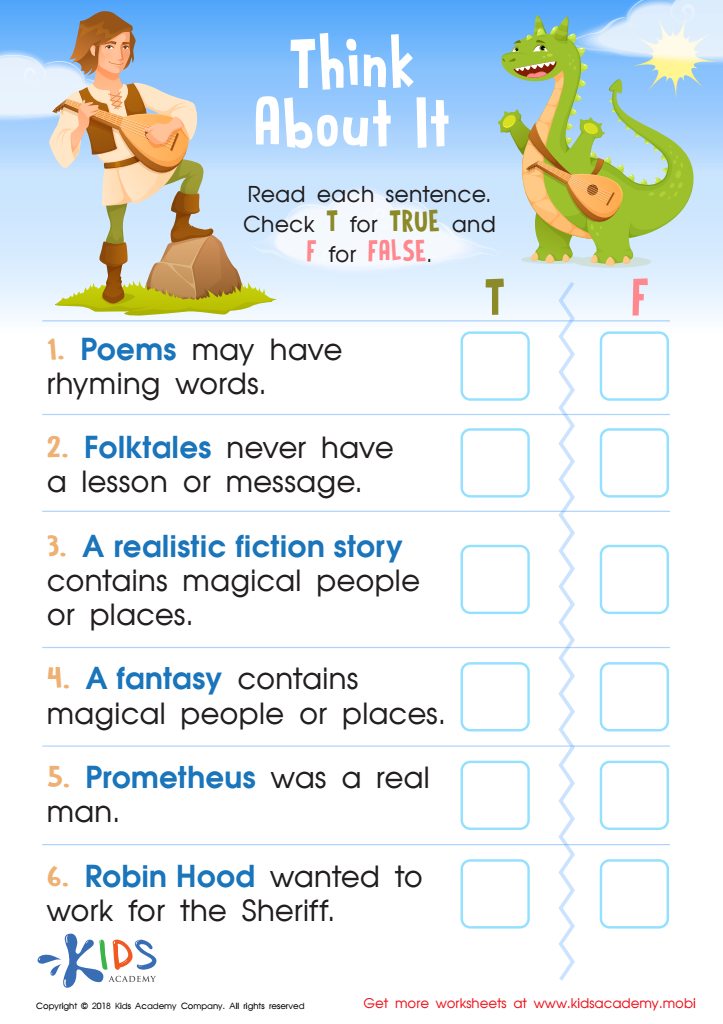

Think About It: Assessment Worksheet
Parents and teachers should care about Logical Reasoning in Normal Reading Fiction for ages 5-8 because it is crucial for cognitive development and literacy skills. At this age, children are naturally curious and eager to understand the world around them. Engaging with fiction fosters critical thinking, as stories often present characters facing challenges that require problem-solving. This encourages young readers to analyze situations, predict outcomes, and draw conclusions.
Moreover, fiction nurtures empathy and emotional intelligence, allowing children to connect with diverse characters and understand various perspectives and experiences. When integrated with logical reasoning activities, such as predicting character choices or evaluating story morals, children enhance their comprehension skills and become more proficient readers.
Additionally, logical reasoning also supports core academic skills, laying a solid foundation for subjects like math and science. Understanding cause and effect, pattern recognition, and sequencing are vital components transferable across disciplines. By focusing on these skills through engaging narratives, parents and teachers can promote an enjoyable learning environment that fosters curiosity, critical thinking, and a lifelong love for reading. In summary, investing in Logical Reasoning in fiction at this essential developmental stage enriches literacy and cognitive skills, enriching children's overall learning experience.
 Assign to My Students
Assign to My Students






.jpg)
.jpg)













